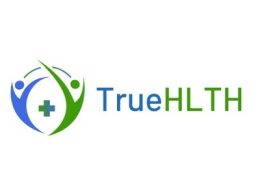You’re in a grocery store planning to check out using a self-checkout kiosk. The machine knows your favorite potato chip flavor along with your preferences and your purchasing limits. The machine then suggests you try a new flavor. Sounds like magic, right? But not to sound like one of those tin-hat people, but how does that kiosk have that information, and should it have that much power – there’s a ton of AI involved in the kiosk that’s making informed decisions without involving you in the decision-making process. That’s how AI’s power can make everything convenient enough for consumers, but there’s a catch: it has implications for consumer protection and cc.
The Role of AI in Consumer Interactions
AI has dramatically changed many industries, including finance, healthcare, retail, and enterprise customer service, and it also affects private life. AI makes decisions about setting a credit score, insurance premiums, or to whom to lend money. In retail, customers are offered the perfect goods per their taste. But all of us know the dark side of AI algorithms —– it is a lack of transparency, fairness, and accountability. Without AI compliance, companies could breach the rights of their customers only through AI itself (biased algorithms or hidden decision-making).
Key Consumer Rights Affected by AI
AI decisions could have a significant impact on consumer rights — transparency, fairness, and redress. The consumer has a right to know how a decision — like the sanction of a loan — is being made. AI’s lack of transparency may lead to a lack of trust and litigation. AI should be fair and just and should not discriminate — as algorithm bias may cause discrimination in hiring or credit scoring, requiring AI to be evaluated on a continuous basis. The consumer also has a right to challenge and question how AI made a decision — thereby providing oversight and ensuring that consumer rights are not violated.
Legal Obligations for Businesses Using AI
AI technologies are governed by laws that eliminate transparency, fairness, and accountability measures. GDPR, therefore, requires companies to allow people to have an explanation regarding the decision made by AI and to ask them for consent before selling their data or collecting it. AI Act, on the other hand, legalizes AI in risk-based form, as AI systems are categorized as No-risk, Limited-risk, and High-risk, and laws are more authentic for the high-risk category. For example, AI credit score and biometrics identification. Certain types of laws ban companies for misleading information, impersonation, scam-fraud, scam, tricks, and hustle, and include abuse of systems and require companies to do something to prevent unfair and deceptive practices for sale of fake recommendations or misleading customers to think they were offered a bargain price.
Common Legal Risks for Businesses
Companies must be wary of legal risks when using AI because of how transformative it can be for your business. Legal risks can come in two forms from using AI: bias and then treating AI poorly. The bias of AI models can dictate problematic actions that are somehow discriminatory, and discrimination means, in simple words, a breach of consumers’ civil rights. Bias in AI models occurs when they are trained on biased data and follow this path. It is much the case when only regular audits can protect you from making avoidable mistakes. Another threat, in a legal manner, can become information security. If companies can manipulate information, it is illegal, and they can lose their reputation and money. However, there is the GDPR that allows the information to be wiped if agreed by a customer physically.
Steps to Protect Consumers and Your Business
If you are the proud owner of your very own enterprise and you have jumped into the AI game – chances are you are still getting your sea legs and attempting to understand it. But this doesn’t mean you will get a pass if anything goes wrong, thus, you need to know how to move to make sure you are doing ethical AI compliance and staying on the right side of the law in your organization. Work hard to ensure that your AI tool is transparent, fair, and unbiased. Test and audit all the time what kind of bias you have to remove so you never find yourself in some sticky legal mess.
When to Seek AI Legal Advice
Businesses will have to defend themselves using a cadre of lawyers (when they build AI. AI legal advice is complex and includes ever-shifting sands of requirements and many consumer protection concerns. However, if businesses actually hire experts on the front end, they can avoid those pesky fines and will not waste their assets and sources to self-investigate themselves and ultimately correct their AI to ensure its compliance.









